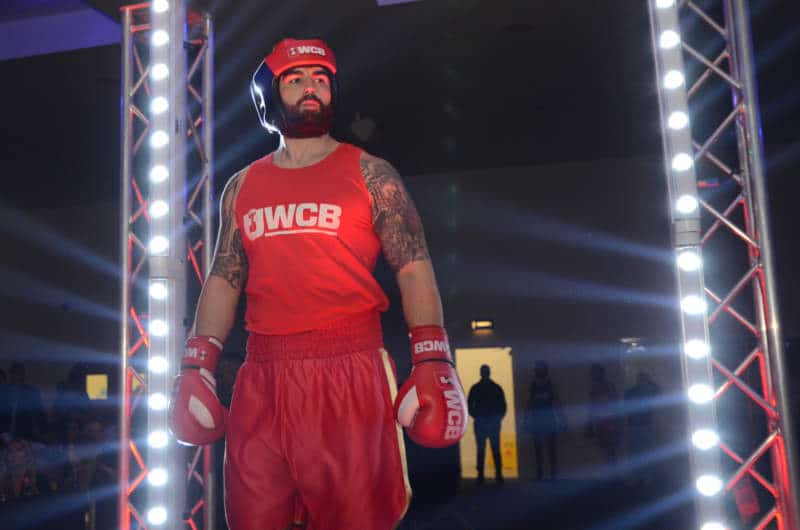“White-collar boxing” refers to a form of boxing in which individuals who typically have professional careers outside of boxing engage in the sport for recreational purposes, fitness goals, or charity events. It’s called “white-collar” because it contrasts with traditional professional boxing, which often involves individuals from working-class backgrounds who pursue boxing as a full-time career.
Here are the key characteristics of white-collar boxing:
Recreational Activity: White-collar boxing is primarily undertaken as a recreational activity rather than a full-time career. Participants often have jobs in various professions, such as business, finance, law, technology, and many other industries. They engage in boxing to challenge themselves, stay physically active, and learn the sport’s fundamentals.
Fitness and Wellness: Many people turn to white-collar boxing to improve their physical fitness and overall wellness. Boxing training provides an intense cardiovascular workout and helps individuals build strength, endurance, and coordination.
Charity Events: White-collar boxing events are sometimes organised as charity fundraisers. Participants train for 8 weeks and then take part in matches or amateur-style bouts to raise money for a charitable cause. These events often attract attention and support from the participants’ professional networks.
Training: White-collar boxers receive training and coaching to learn proper boxing techniques, footwork, and defensive skills. The training may mirror that of amateur boxers to ensure participants have a solid understanding of the sport.
Safety: Safety is a paramount concern in white-collar boxing. Participants typically wear protective gear such as headgear, mouthguards, and 16oz padded gloves during their matches. The emphasis is on controlled sparring and friendly competition rather than aggressive fighting.
Skill Development: While white-collar boxers don’t typically pursue professional careers in boxing, they do focus on developing their boxing skills. This can include learning how to throw punches correctly, understanding boxing strategy, and improving overall fitness levels.
Networking and Socialising: White-collar boxing events can serve as networking opportunities, allowing participants to connect with others in their professional field while engaging in a shared experience. The camaraderie and shared challenge of boxing can foster connections among participants.
Inclusive Nature: White-collar boxing is often open to individuals of various ages, genders, and fitness levels. It encourages inclusivity and welcomes people from diverse backgrounds who are interested in exploring the sport.
It’s important to note that while white-collar boxing offers individuals a chance to engage with the sport in a controlled and recreational manner, it’s a distinct activity from professional boxing. Professional boxers dedicate their lives to the sport and compete at a high level for financial gain and recognition. White-collar boxing, on the other hand, allows individuals to experience the physical and mental aspects of boxing without necessarily committing to a career in the ring.


Is this for males only?
No, everybody able and over the age of 18 can take part.